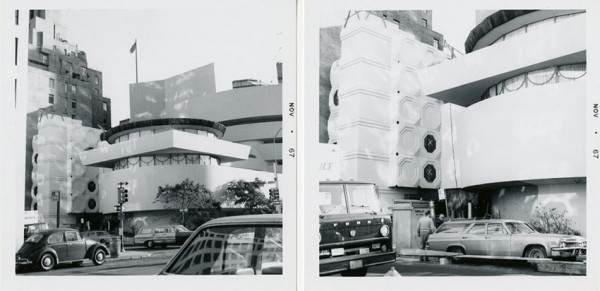
In 1968, before the tower that currently stands beside the Guggenheim’s spiraling main building was built, there was another tower that stood just four stories high, a construction that was completed by William Wesley Peters—Frank Lloyd Wright’s son-in-law and chief architect of his firm, Taliesin, following the master architect’s death in 1959—and has a bit of a “Connect Four” feel to it.
In addition to being married to Wright’s stepdaughter Svetlana Wright Peters—who died, along with their son, in a 1946 car accident—Peters was famous for briefly being married, in the early 1970s, to Svetlana Alliluyeva, the daughter of Joseph Stalin.
As the Guggenheim explains in a Throwback Thursday post, Peters’s diminutive and futuristic tower was eventually replaced by the Gwathmey Siegel & Associates-designed building that now occupies the site, which was completed in 1992. Peters died while his tower’s replacement was still under construction, in 1991.
“It was my opportunity and honor somewhat more than thirty years ago to come as a young man under the hand and leadership of Frank Lloyd Wright,” Peters told architecture students at Yale during a lecture in 1963. “It has been my great privilege to follow and participate for these intervening years in the architectural thought which proceeded from and surrounded that great force. It has been my great good fortune to share with Mr. and Mrs. Wright their effort to establish at Taliesin and at Taliesin West an educational environment which in concept and effort is unique in the world today.”